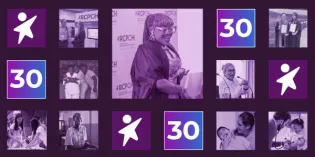This programme ran for five years until March 2023.
Our Impact report 2022 highlights the impact this programme had on paediatric diabetes units across England and Wales from 2018 to early 2023. Our Self-assessment report 2018-2022 evaluates the units' compliance against more than 150 measures.
Disclaimer: The RCPCH have been notified that the above are good examples of innovative practice. Inclusion of these examples does not constitute formal RCPCH endorsement.
Scientific papers
The Swedish QI Journey (PDF) This paper, Continued improvement of metabolic control in Swedish paediatric diabetes care, prospectively investigates if the grand mean HbA1c and the differences in mean HbA1c between centres in Sweden could be reduced, thereby improving care delivered. Credit: Samuelsson, U., et al. 2016. Continued improvement of metabolic control in Swedish pediatric diabetes care. ISPAD
Tools
All About Me - a leaflet to use with patients in clinic (PDF) Credit: Bradford Teaching Hospitals NHS Foundation Trust
Newly diagnosed Type 2 structured education pathway for post discharge / post initial diagnosis (PDF). Credit: Paediatric Diabetes Team, Barts Health NHS Trust, Royal London Children’s Hospital
Example ketone cards given to families - for pen therapy (PDF) and for pump therapy (PDF). Credit: Noala Bradshaw, Alder Hey Children's NHS Foundation Trust
How to download to Diasend (video) - an instructional video created with one of the hospitals' families. Credit: Paediatric Diabetes Team, City Hospitals Sunderland NHS Foundation Trust
Getting ready for clinic (PDF) - form for patients to complete to give them greater control on the topics covered during clinic. Credit: Paediatric Diabetes Team Gloucestershire NHS Foundation Trust
School clinic for children with diabetes (video) - showcasing clinics that are run in schools in Hillingdon. Credit: Paediatric Diabetes Team Hillingdon NHS Foundation Trust
Healthy wellbeing for children and young people with diabetes (video) - showcasing the wellbeing support offered to children and young people. Credit: Paediatric Diabetes Team Hillingdon NHS Foundation Trust







